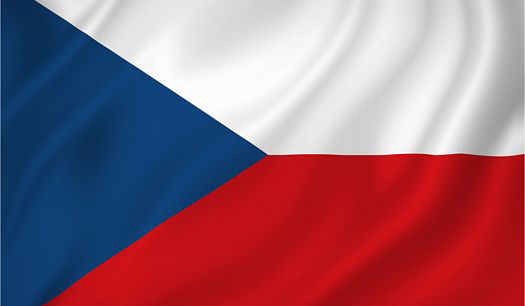Amendments to Czech law that would raise the national THC limit for industrial hemp to 1.0% could spark other EU countries to revisit their current limits. But the change is not likely to affect farmers, who can’t qualify for subsidies if their hemp crops are over the EU limit of 0.2%, and food and cosmetics rules still must be changed to establish a legal pathway to market for those products.
Czech President Miloš Zeman is expected to sign the bill after the Parliament’s Chamber of Deputies sent it to his desk earlier this month.
Changing the amount of THC allowable in hemp plants to 1.0% would put the Czech limit well beyond that of the EU, even after the European Parliament voted last October to increase the authorized THC level for industrial hemp “on the field” from 0.2% to 0.3%.
Farm subsidies critical
In addition to direct cash offsets, many European farmers growing hemp have depended on direct subsidies or EU Rural Development Programme funds as security for agricultural loans and deferred payments. To be eligible for those funds, farmers’ crops may not go beyond the EU’s 0.2% THC limit despite local laws which may be different.
But the Czech law pushing the THC level beyond the EU limit could nonetheless serve as a beacon to other member states, stakeholders say.
“It’s definitely an interesting signal to other EU countries, and maybe it can eventually help to bring the European THC level to 1.0% in the long run,” said Boris Baňas, Chief Sales Officer at Czech-based CBDepot, who estimated that process could take “more than a year or two.”
While the EU-wide change to 0.3% THC is not expected to be in effect until 2023, member states are now in the process of adjusting their national laws to align with the updated limit after the change was included in the most recent round of Common Agricultural Policy (CAP) reforms.
Trend to 1.0% THC
Many nations around the world are establishing 1.0% THC as their national limits, breaking with the generally accepted global guidance of 0.3% that has been observed since hemp re-emerged in the 1990s.
“Many countries are at 1% already, including Switzerland and Australia,” said veteran American cannabis consultant Richard Rose, who has suggested that certification of hemp varieties should imply legal THC levels. “Not testing THC for approved varieties is what I’ve been advocating for years, since government certification should count for SOMEthing,” Rose said.
The higher limit is important especially for CBD producers; higher THC means higher levels of CBD, as the two compounds rise in proportion. For farmers, it means much less risk of their crops going “hot,” or over the allowable THC level.
“EIHA welcomes this modern approach to THC limits, which is in line with the global development of commercial hemp cultivation,” European Industrial Hemp Association President Daniel Kruse said of the new Czech law.
Decriminalizing extracts
Aside from resetting the THC limit for hemp “on the field,” the new law would mean possession of hemp extracts and tinctures with less than 1% THC won’t be considered a criminal act. “But it doesn’t mean you can infuse any food or cosmetics as such,” Baňas said. Those rules must still be changed to create a legal market.
In a report to Czech Senators outlining the new law, CzecHemp, a stakeholder cluster, said the package of amendments “opens the possibility to manufacture and market products up to a maximum of 1.0% of tetrahydrocannabinol,” but notes that provisions in the new law are “without prejudice to other regulations,” and that products “must be safe and non-misuse.”
While the new law won’t lead to immediate marketability of food and cosmetics, it would decriminalize hemp-based health aids or “cosmetics” often home-made by Czech seniors, according to CzecHemp.
Little effect on processing
While the THC limit change could lead to more latitude and less bureaucracy for extractors, Baňas is skeptical about that. “THC often goes over 1% in hemp processing,” he said. “That means those companies will still need to have authorization for handling that material.”
Under the updated medical cannabis provisions in the new law, multiple licensed private groups could be authorized to manufacture medical cannabis products. Proponents say the changes would expand the availability and diversity of products through competition certain to drive down prices to patients.
In other interpretations from CzecHemp, the new law also:
- Introduces the term “technical hemp,” (industrial hemp) defined as a plant which comes from seeds listed in the European Catalog or from which hemp with a content of up to 1% THC can be produced.
- Removes a requirement that processors of “technical cannabis” have authorization to handle addictive substances.
- Establishes the term “hemp extract for medical use” defined as “intended for the preparation of an individually prepared medicinal product.” CzecHemp said the State Institute for Drug Control must still amend existing legislation to set conditions for “prescribing, preparation, distribution, dispensing and use of individually prepared medicinal products containing cannabis for therapeutic use.”

